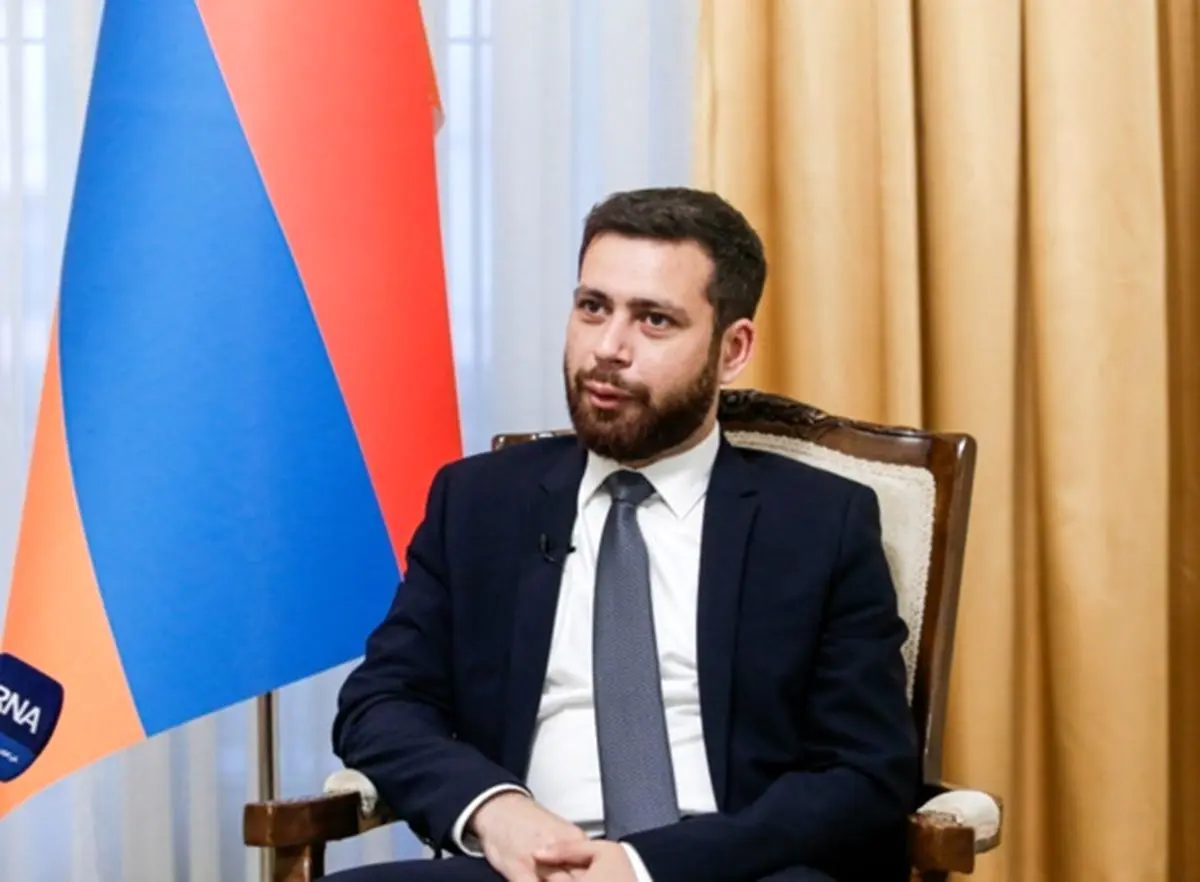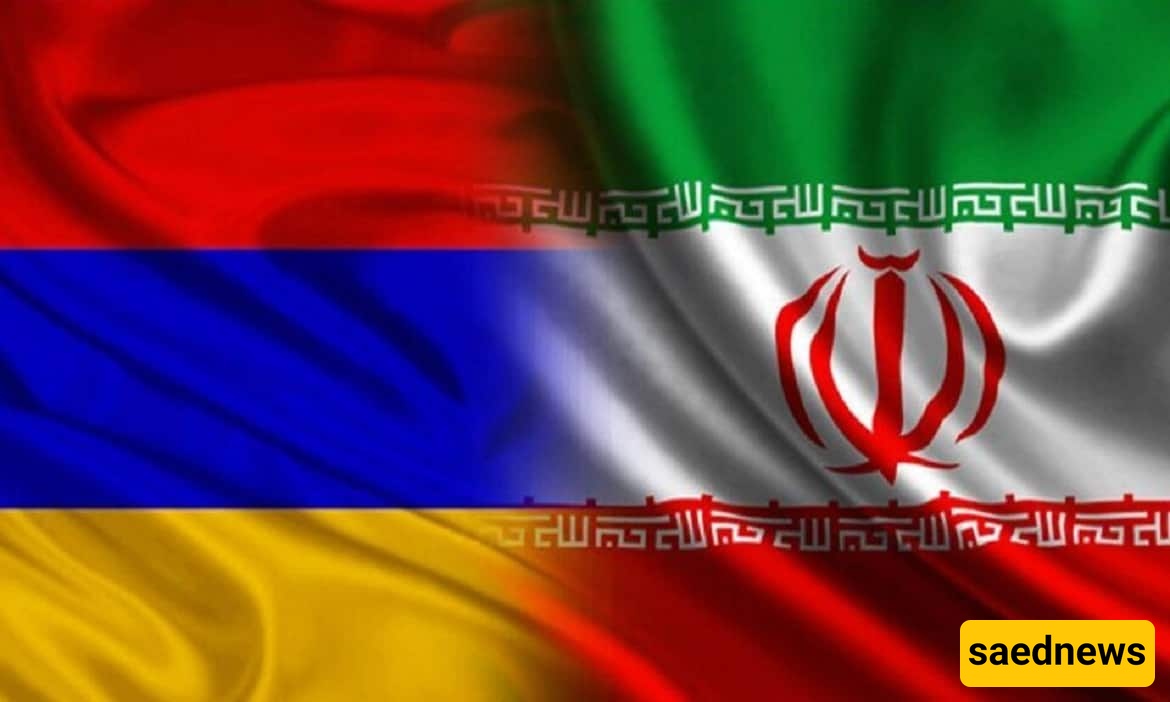SAEDNEWS: Armenia’s Deputy Foreign Minister emphasized the strategic importance of Armenia-Iran relations, underscoring historical ties, regional connectivity, and respect for Iran’s security concerns in ongoing negotiations.

Armenia’s Deputy Foreign Minister stated that the government and people of Armenia hold deep respect for the leadership, government, and people of Iran. He emphasized that the bilateral relationship has strategic significance and will never be subject to geopolitical bargaining. "We cherish this relationship, which has a history spanning thousands of years, and must strengthen and preserve it for future generations. This is my government’s belief and message," he added.
In an interview with the state news agency, the Deputy Foreign Minister discussed bilateral relations and future opportunities:

Since Armenia’s independence, the two nations have maintained excellent and even exceptional ties. Since 1991, bilateral relations have steadily grown. Today, relations between our countries, leaders, and governments are highly special and hold great significance for us. I believe these relations are strategic in nature, and I am confident that President Majlesian’s upcoming visit to Yerevan will elevate them further.
These relations encompass multiple areas of cooperation, from politics to economics. In recent years, we have achieved remarkable trade results and set ambitious goals, including reaching a $1 billion trade volume, with the eventual goal of $3 billion. Armenia’s relationship with Iran is unique and extends beyond energy or politics, as having a good neighbor is a national priority. This priority is also embedded in our government’s 2021–2026 program, and the policies and indicators set therein are being successfully implemented.
This historic development attracted global attention, including in Iran. It is important for us to hear feedback from our brotherly countries, particularly Iran. We appreciate the balanced statement from Iran’s Foreign Ministry and subsequent remarks by the Iranian President and Foreign Minister. We are entering a new phase in Armenia-Azerbaijan relations, in which both countries openly commit to peace. This will positively affect bilateral relations and regional dynamics, politically and economically.
A key agreement with Azerbaijan involves reopening regional transport routes with full respect for sovereignty and territorial integrity. Practically, this will open new opportunities for rail connectivity between Armenia and Iran, including via the Nakhchivan–Julfa line, providing Iran with access to Armenia and ultimately the Black Sea.
Armenia has participated in the 3+3 regional dialogue since its first meeting, both at the deputy minister and ministerial levels. We believe this dialogue can provide a suitable framework to explore regional projects, particularly connectivity initiatives. Recent developments and the agreement to reopen transport routes have opened a new chapter for such discussions, including within 3+3. The next ministerial meeting will be held in Yerevan or Baku, and we continue bilateral consultations with Azerbaijan.
Regarding Iran’s concerns over U.S. involvement, Armenia has taken these into account. These sensitivities have been considered during preliminary negotiations on the TRIPP connectivity project. Some details have been agreed with Iran and can be publicly confirmed: a company will be registered in Armenia with shared Armenian-U.S. ownership, but this does not imply U.S. security presence in the region. Armenia prioritizes uninterrupted and strategic access across the Iran-Armenia border for goods and passengers, and expects no obstacles in this regard. All connectivity projects respect national sovereignty and jurisdiction.
Armenia believes that opening transport routes under the Prime Minister’s "Peace Crossroads" initiative should act as a confidence-building measure rather than creating new geopolitical constraints. U.S. shares in the company benefit the United States, Iran gains access to the Black Sea, and Armenia connects via Azerbaijani rail to Russia. This interdependence should serve as a bridge for cooperation, not a barrier.
One of Tehran’s main concerns is the historic Iran-Armenia border. Armenia respects this border and values Iran’s political support. This stance is as important to Armenia as it is to Iran and will never change under any circumstances.

